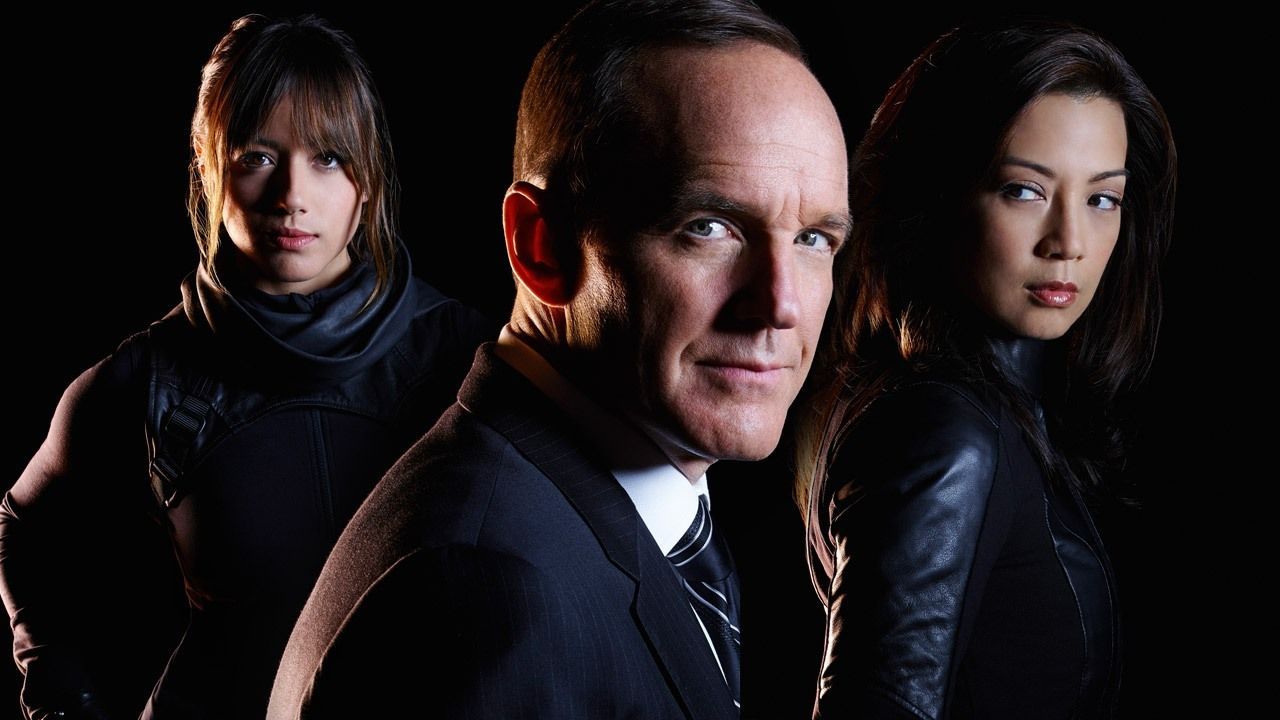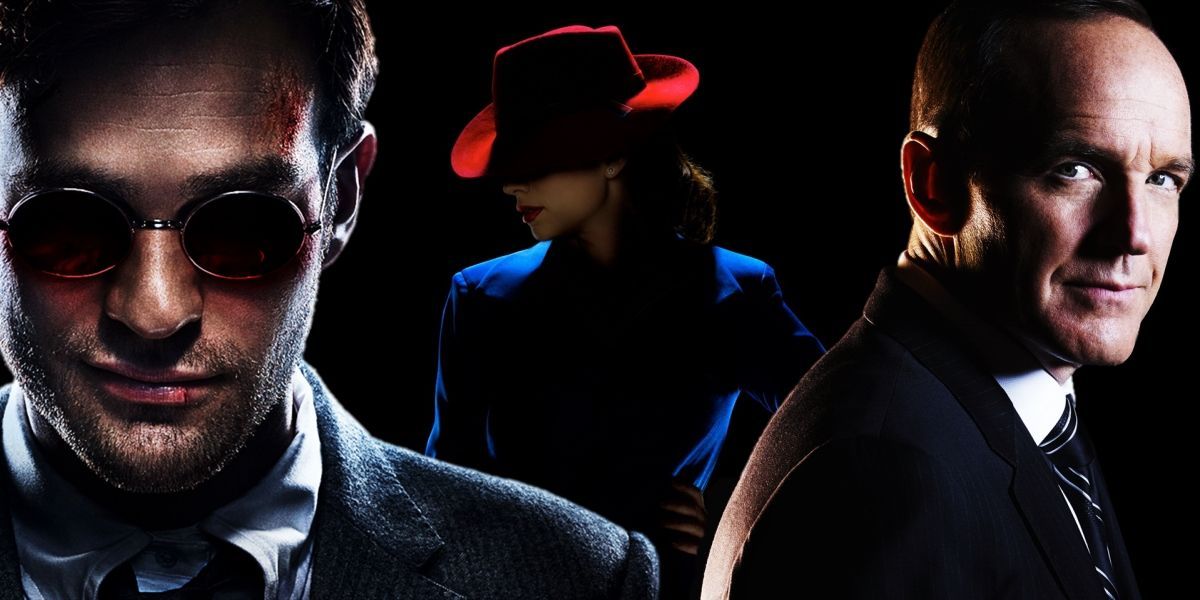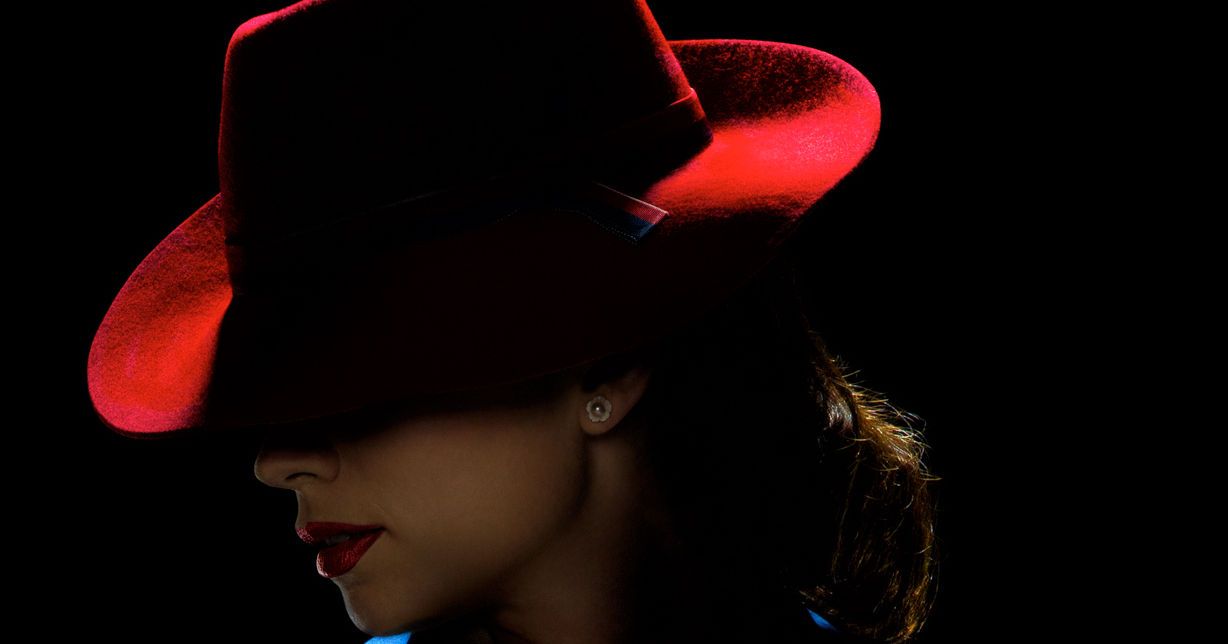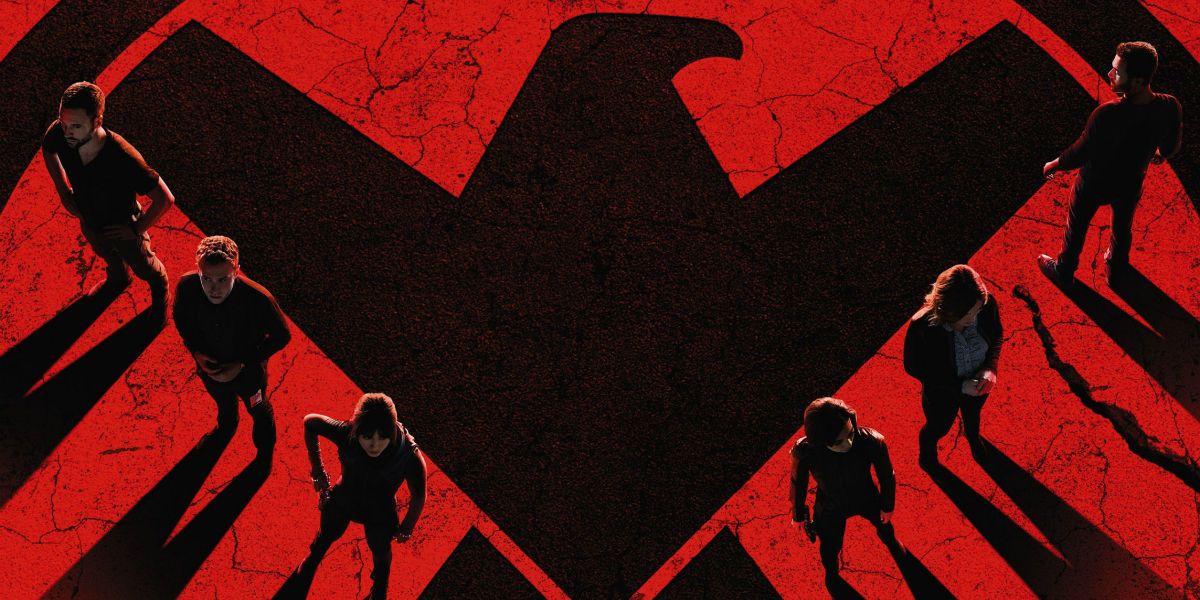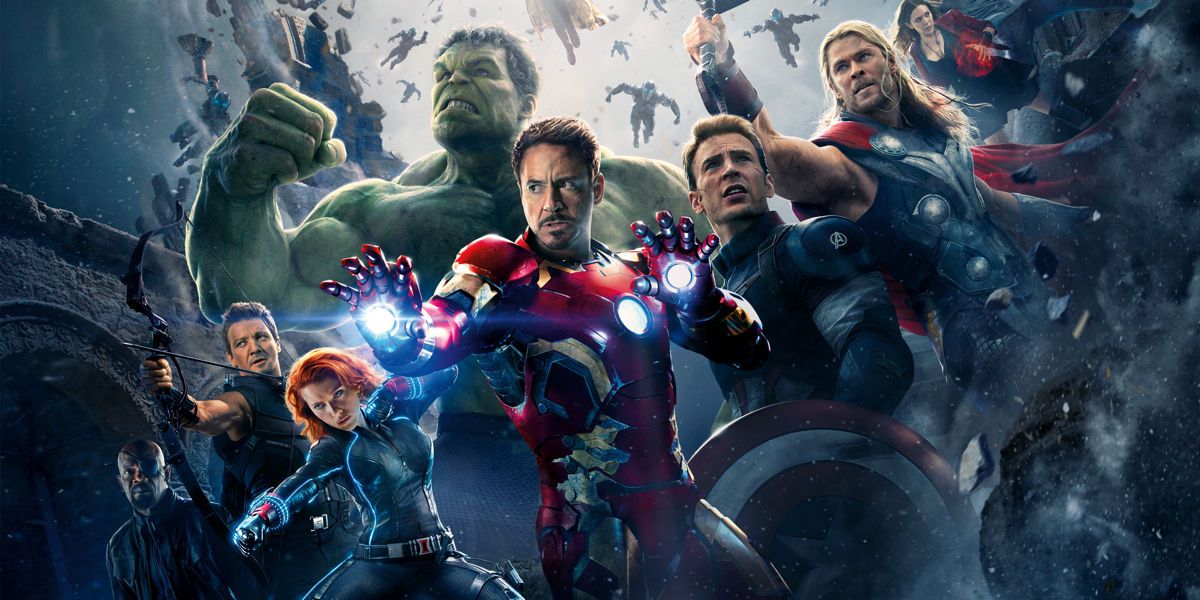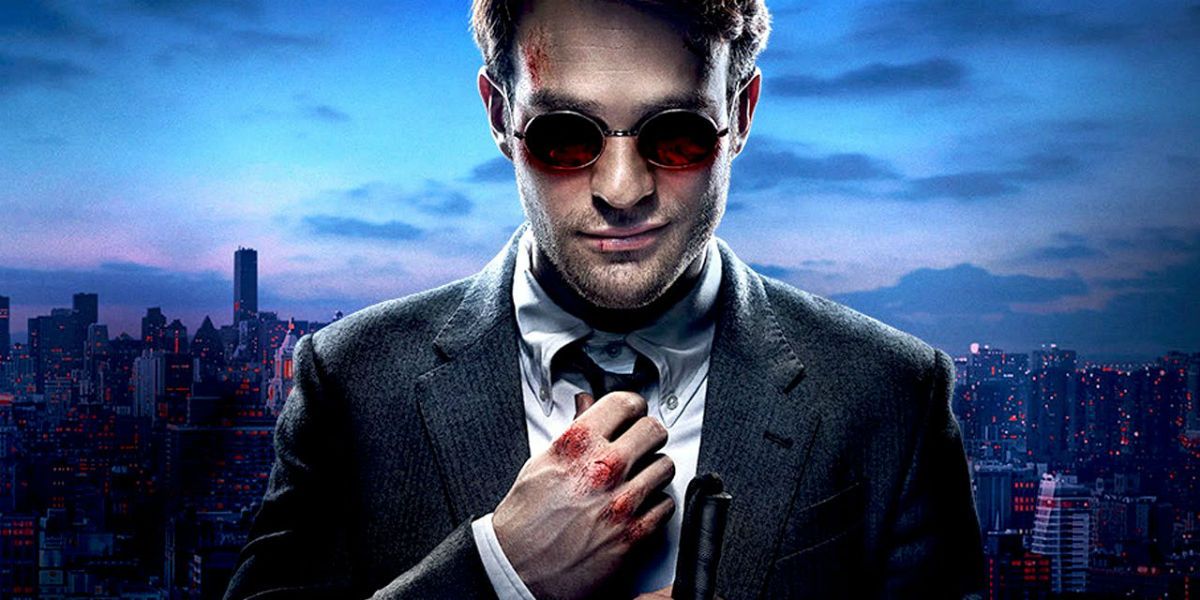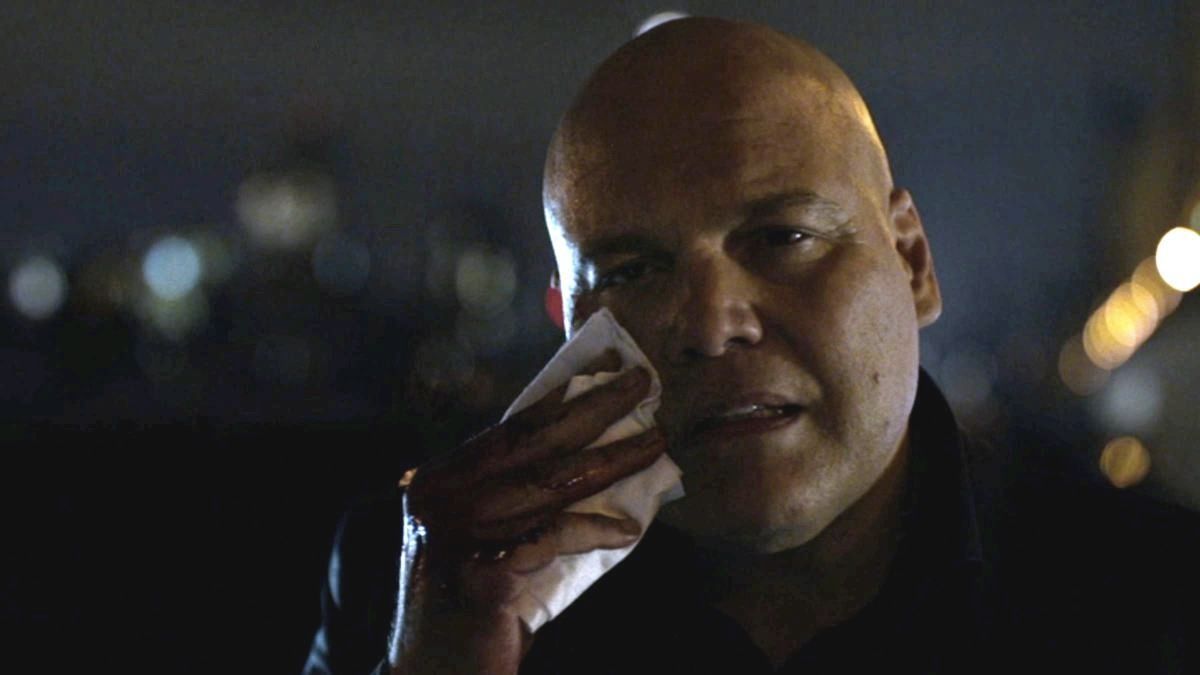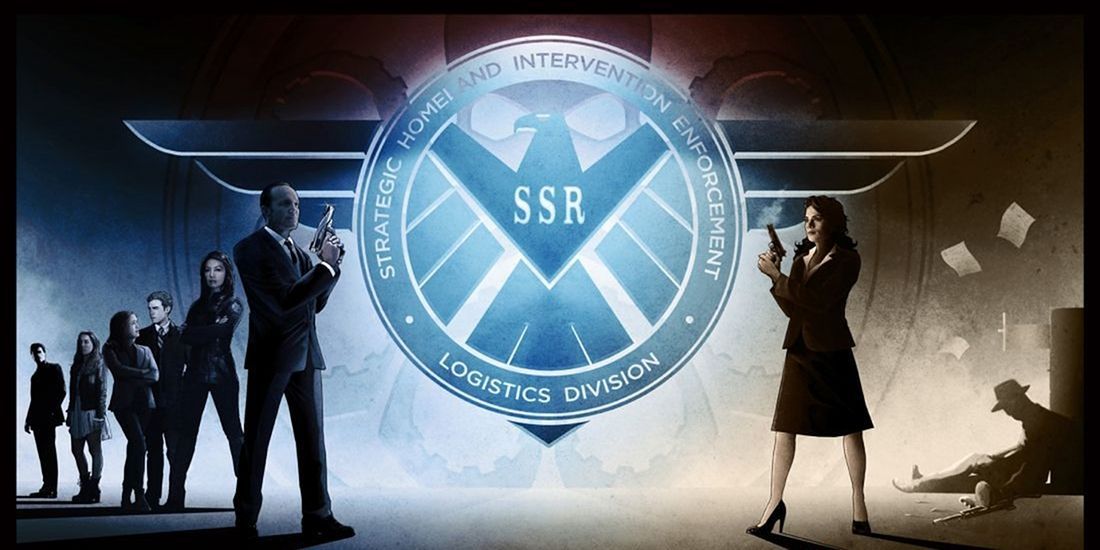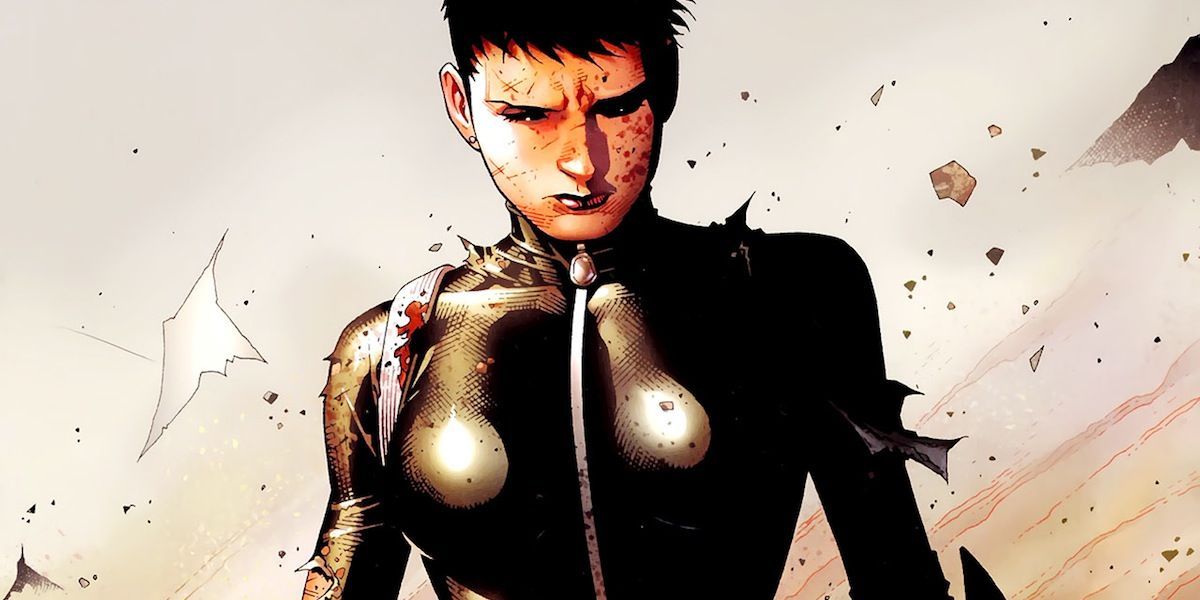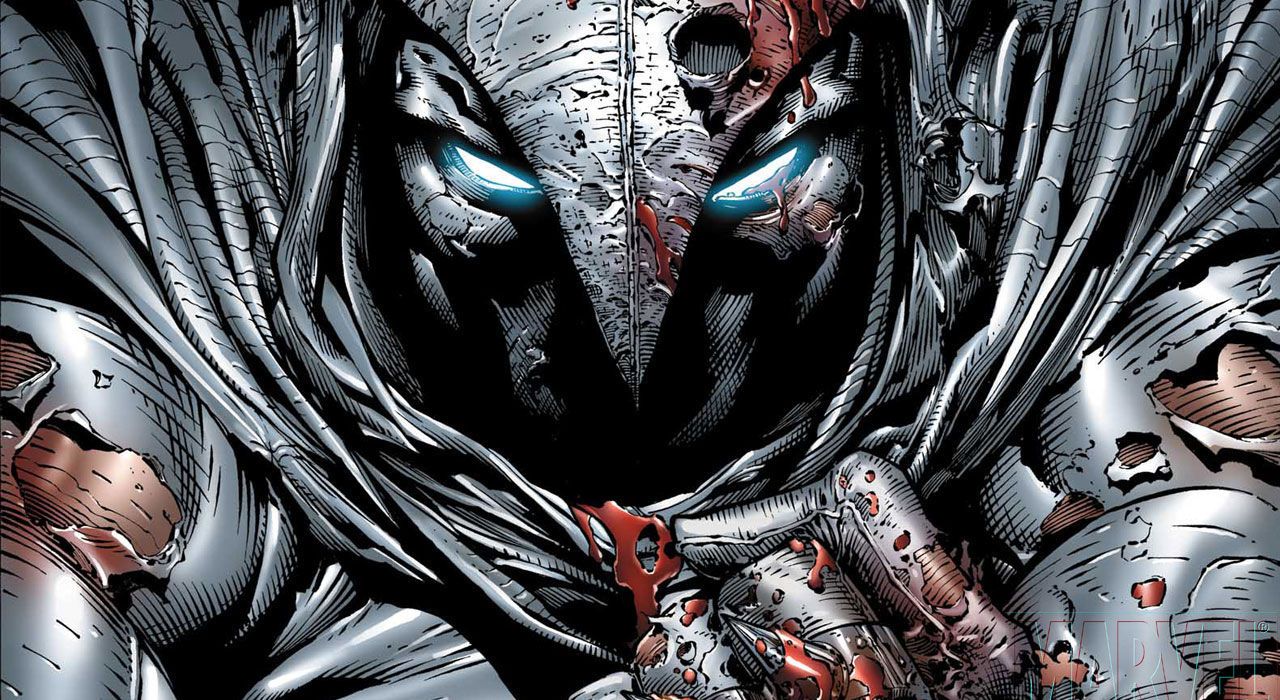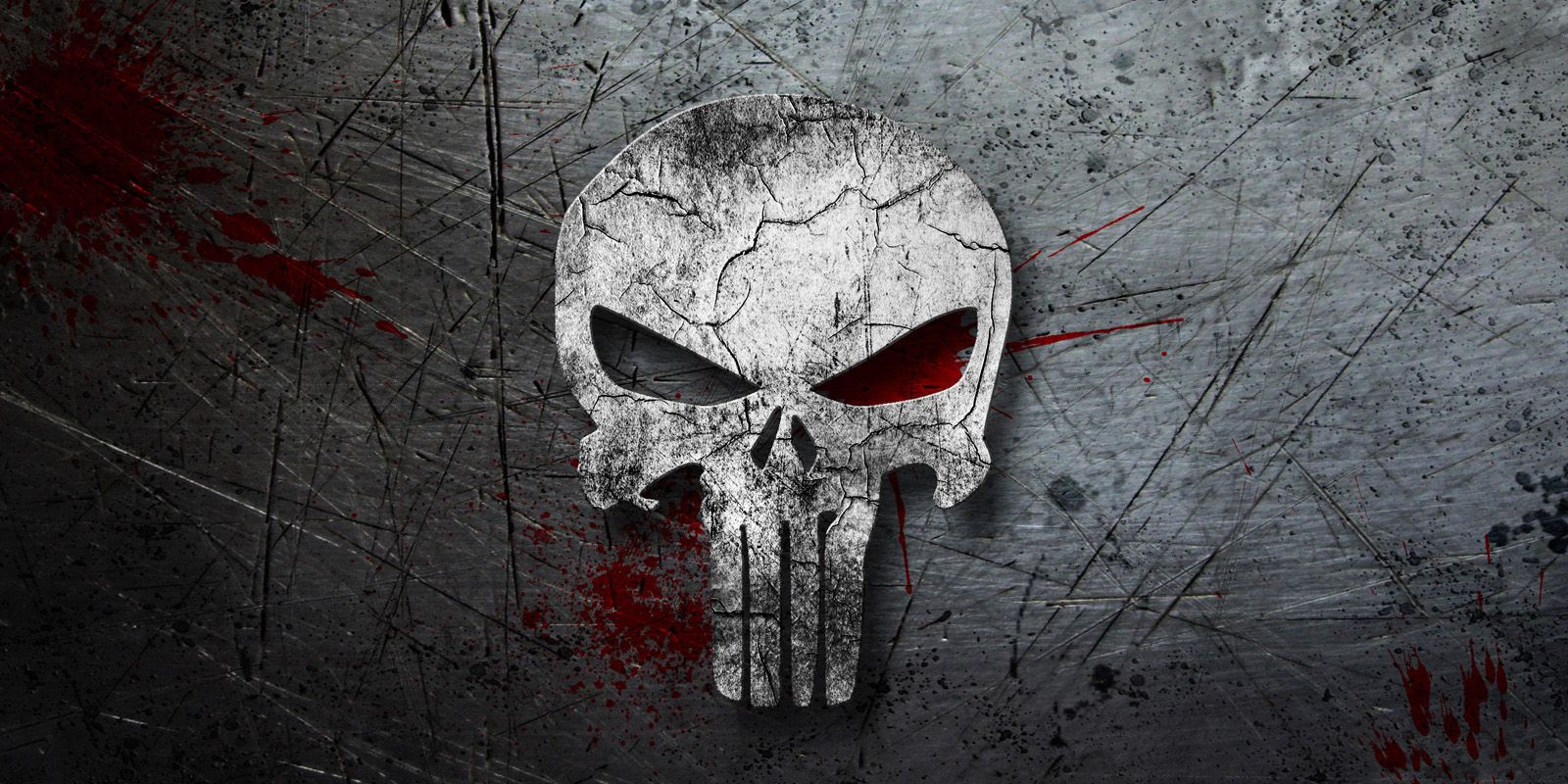Phase Two of the Marvel Cinematic Universe has come to an end with the release of Ant-Man, and in the three-years it took to go from Tony Stark's battle with the Mandarin to Scott Lang's induction as Marvel's tiniest hero, a great deal has happened, on and off the screen. From the successful launch of Guardians of the Galaxy to the announcement of the MCU Phase Three films and Spider-Man joining the Avengers universe, the Marvel Studios brand has never been bigger or more lucrative.
However, along with the lineup of Phase Two films (Iron Man 3, Thor: The Dark World, Captain America: The Winter Soldier, Guardians of the Galaxy, Avengers: Age of Ultron and Ant-Man) have come increased criticism of the Marvel brand of movie-making. And yet, on the television side of things, Marvel has experienced a definite upswing - making what was once thought of as the black sheep of the brand potentially its best prospect for a successful and expansive future.
Here's why Marvel TV is the Real Hero of MCU Phase Two
5. It's The Most Improved
The TV portion of the MCU started in 2013 with the premiere of Agents of S.H.I.E.L.D., and to say that it wasn't an immediate success in the same way as the movie side would be a gross understatement. As concerns were mounting about Marvel's plan to introduce talking space raccoons into movie theaters, fans were also wondering whether or not the attempt to extend the MCU to TV screens wasn't a failed experiment. After all, TV was looked at (even by Marvel itself) as a lesser venue for storytelling, so the idea of a universe connected on both big and small screens was far from a proven concept. However, during the course of Phase Two, Marvel TV made a rapid rise to prominence - now inviting debates about whether it outshines competitors like The CW's DC TV Multiverse.
The 180° turn began in spring 2014, when Agents of S.H.I.E.L.D. was heading toward its season 1 finale. With Captain America: The Winter Soldier releasing in theaters at the time, AoS was forced into a sudden change in direction (the fall of S.H.I.E.L.D.) that led to fan interest in the show spiking, and the showrunners getting a second chance to correct mistakes made early on. In season 2, Aos went from improved espionage action show to a full legit extension of the MCU, mixing in elements of Guardians to introduce Marvel's Inhumans into the fold (as lead-in to their Phase Three movie), and setting up another fan-favorite property (Secret Warriors) to reboot AoS as a superhero espionage action show in season 3.
Love it or hate it, Agent Carter proved to be another branding success for Marvel TV, one that introduced a much-needed female-led property while also garnering fan interest by pulling more directly from the MCU films. In fact, Peggy Carter has arguably been the glue holding all of Phase Two together, appearing in AoS, Agent Carter, Avengers 2, and Ant-Man to help move relevant plot points and characters forward.
Finally, Marvel's Daredevil Netflix series came along in spring 2015 and totally changed the game. Now Marvel (and superhero TV in general) has a darker, more adult corner to build in, and the fan response indicates that it is (so far) an overwhelmingly successful venture. With Jessica Jones, Luke Cage and Daredevil V Punisher (aka season 2) all on deck for early Phase Three, it's clear Marvel Netflix has been a successful experiment of its own.
As for the movies: Aside from Marvel's magical "can do anything" year in 2014 (Captain America 2, Guardians of the Galaxy), the company's Phase Two films have been met with a lot more criticism than Phase One. And unlike the TV side, once needed readjustments to the movie formula come to light (like those weak, thin, villains), things are typically too far into development to make the changes. With Ant-Man in particular there seems to be some Marvel movie fatigue setting in - while anticipation for the upcoming TV slate has never been higher.
4. It's Still Inventing & Varying Itself
Agents of S.H.I.E.L.D. has had to reinvent itself several times over in order to stay alive (lighthearted spy action, more serious espionage action, X-Files-style investigation into the extraterrestrial, full-on superhero show). Agent Carter was a period piece. Daredevil was a dark crime drama with superhero elements thrown in. In short: everything in the Marvel TV Universe is of a different flavor, either offering a bit of something for everyone, or a nice buffet for the hardcore followers.
More to the point, Daredevil was a refreshing surprise when audiences finally got a look at it - darker, more violent and more character-focused than many expected. The novelty of it (something new and different form Marvel!) was almost half the selling point, and so far it seems like the next Marvel Netflix series, Jessica Jones, won't just be "Daredevil with a female lead" - it will be a different show altogether, with a unique tone and complex character drama. There are some bleed-over similarities expected from Jones' sibling series, Luke Cage, but the rumors that Marvel TV is having trouble with Iron Fist (in part, supposedly, because it needs to be distinguished from Daredevil) at least suggest that variety is a priority for that division of the company.
On the broadcast side, Agents of S.H.I.E.L.D.'s season 3 plan for "Secret Warriors" constitutes another quasi-reboot to the show's story, providing renewed novelty to the series. And though it remains to be seen if Agent Carter's move to a West Coast setting is a fresh start for that show, the possibility is there.
As for the movies: Despite promises from Marvel Studios head Kevin Feige that formulaic superhero stories won't be the standard for Marvel Movies, in Phase Two that was pretty much what we got. With the exception of Captain America: The Winter Soldier, world-stakes battles against generic (and one-off) villains was the order du jour.
In the cases of Guardians and Ant-Man, fun and humorous scripts still couldn't mask the fact that we were essentially getting more Iron Man/Avengers-style origin stories. Sequels haven't had it easy, either, with Captain America 2 being the exception that proves the rule of bland and forgettable Marvel movie followups. So while Marvel TV is still expanding and evolving, fans are beginning to wonder if upcoming films like Doctor Strange will truly do the same for the movie side.
3. It's More Adult
The biggest pressure point about the Marvel Cinematic Universe that naysayers like to press is that it's a little bit too "kiddy." It was a label that was thrown around from the very beginning of the MCU, but when Disney purchased Marvel back in 2009, the notion of the Marvel Cinematic Universe being "baby-proofed" for the merchandise-hungry Juice box crowd became (in the minds of some) a permanent strike against the studio and its projects.
That stigma followed to the TV side, where Agents of S.H.I.E.L.D. was already getting demonized for being "Spy lite" material as soon as it was announced that the series would air on Disney-owned ABC - in an 8pm time slot, no less. And when AoS first aired, it was clear that indeed the show was being tailored for a Disney brand. But here's the twist: when that didn't work, things changed.
As stated, S.H.I.E.L.D. really did change things up around the end of season 1, inviting darker, more adult-themed storylines that better fit its espionage world. When it came back for season 2, it made the smart shift to a 9pm time slot, essentially targeting an older crowd (to the series' benefit). Agent Carter followed that same blueprint to similar success.
Then came Daredevil, which shocked Marvel and fans into the realization that not everything in the brand (at least on the TV side) need be whimsical, light, and "fun." The era of superhero entertainment encompasses a wide range of adults who grew up as fans of these heroes and their comic books, and it (literally) pays to cater to that older demographic's interests and tastes, as much as it does the family demographic with the feature films. So while Avengers 2 and Ant-Man keep it fun for the kids, dad and mom now have a growing choice of Marvel TV entertainment to enjoy all to themselves. The future possibilities practically write themselves (see: The Punisher).
As for the movies: What is there to say? Marvel Studios has established a feature-film brand that can net them upwards of a billion-plus dollars, in some cases. What's the motivation to change? While TV experiments like a darker, more adult Daredevil are acceptable risks, flopping a $150 million-dollar movie by appealing to niche adult audience may not worth it. At the very least, Marvel Studios will be sitting back to see how viable a character like Jon Bernthal's Punisher is - and/or how well an R-rated superhero flick like Deadpool does - before risking such a big cinematic shift.
2. It Has Better Character Development
We've had two-to-three movies to get to know the likes of Iron Man, Thor and Captain America (respectively); Hulk has had two different movies and three very different actors offering different interpretations of him, and even Black Widow and Hawkeye have shown up in enough MCU films to start to have some depth. However, none of the above have been intimated with fans like Matt Murdock, Peggy Carter or Phil Coulson have. Marvel movies do an adequate job of fleshing out characters in origin tales and giving them developmental shifts over the course of different movies - but Marvel TV has been the real fertile soil for rich character development.
In one season of Daredevil, fans got to know Matt Murdock, his world, and his deeply rooted motivations for being a hero (without an iconic costume, most of the time), better than any feature film could ever explain in a formulaic two-hour narrative (see: Daredevil 2003 film). The longer form of TV storytelling allowed Matt Murdock to be built up and shown off in full three-dimensionality, and that's not the only advantage to Marvel TV storytelling that we've seen.
Characters like Coulson and Carter were novel supporting players in their respective MCU movies (Iron Man, Thor, Captain America), but their transition into becoming major figures on the TV side has been almost direct proof that the small screen can do more with these characters than the films. And it's not an automatic win if a character moves to TV: both Coulson and Carter (and subsequently the shows they headline) had to earn their way into fans' circle of appreciation - and despite several missteps, TV has allowed for the course-correction to steer the characters in better directions.
Chloe Bennett's Skye on Agents of S.H.I.E.L.D. has been one of the most criticized characters in the MCU, but thanks to a long and faithful investment in the character, many fans are psyched to see Skye fully transformed into Marvel superhero Quake when Agents of S.H.I.E.L.D. returns for season 3. As for villains: while the films have one-off, paper-thin antagonists, TV has developed bad guys like Grant Ward (AoS) or Wilson Fisk (Daredevil) into layered, well-developed and interesting foes that we don't mind seeing pop-up time and again. On the Marvel TV side, "bad" is explored with as much depth and weight as "good."
As for the movies: While multiple installments of a superhero movie franchise inevitably brings development and change to the central characters, there has been a weird time-lapse effect on some of the Marvel character development. Tony Stark is a prime example: by the end of Iron Man 3 he's swearing off suits and embracing the man inside; by the time Avengers 2 starts, he's back in the armor and flanked by more drones than ever, with little of the steps in between explained. Villains can only get so much attention in films, for fear of misspent screen time, leaving us with mostly oversimplified and outdated portrayals of the good/evil dividing line. These are pitfalls of films which TV is inherently immune to - as we saw during the course of MCU Phase Two.
1. It Has the Most Future Potential
There's still an elephant in the theater that few fans are willing to address: How long before people tire of superhero movies?
Just as movies like Ant-Man and Fantastic Four are hinting at viewer fatigue with the formulaic superhero origin film, Marvel TV has been expanding into projects like Daredevil, which has given the company confidence for an entire saga leading to a Defenders crossover teamup on Netflix, as well as inspiring possibilities for so many other Marvel characters to shine on the streaming service.
From potentially being able to feature Marvel characters that will never get movies (Moon Knight, Black Widow), to possibly being able to redeem Marvel characters who burned out on the movie screen (Punisher, Blade, Ghost Rider), Netflix alone could sustain the MCU with original material that is more cost-effective and accessible to viewers than a theatrical commitment. After the hard lessons of Agents of S.H.I.E.L.D., broadcast TV can also still be a more ad friendly and wide-ranging battleground to compete with the likes of CW's DC TV Multiverse, using more family friendly material.
In short: With more options for tone, approach and material, Marvel TV can vary it up but retain canonical weight and still deliver enough brand satisfaction to avoid dying off - even if the superhero movie bubble bursts.
As for the movies: Sure, right now it feels like superhero movies are all the rage, but in cinema trends come and go, times and tastes change, and what used to be the major draw falls out of favor. Between 2016 - 202o superhero movies are going to (over)saturate theaters, virtually year-round. But once the Batman V Superman to Justice League run is over - once Marvel has brought the entire MCU together for a two-part Infinity War - will there be a renewed passion for the next phase of comic book flicks? Or will it mark the high tide peak, before this wave rolls back? Hard to call at this point, but the cracks are definitely starting to show...
NEXT: The MCU Phase 3 Complete Release Schedule
Daredevil is currently available on Netflix. Jessica Jones premieres in Fall 2015, followed by Luke Cage and Daredevil season 2 in 2016. Season 3 of Marvel’s Agents of S.H.I.E.L.D. premieres Tuesday, September 29 at 9:00 PM ET on ABC. Agent Carter will air season 2 in early 2016.

